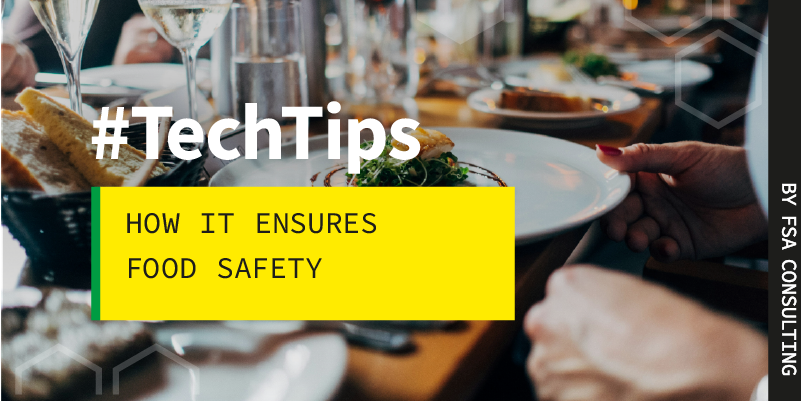Food safety and traceability concerns are paramount for consumers and businesses. Information Technology is multifaceted in ensuring food safety and traceability throughout the supply chain. From the moment a seed is planted on a farm until it is plated as a meal, IT systems safeguard the integrity of the food supply chain. By leveraging IT solutions, stakeholders enhance productivity, minimize risks, and build consumer trust. As your IT experts, let’s take a look at the role of IT in ensuring food safety and traceability, and examine the impact of IT from the farm to the fork.
Farming and Production
Everything starts somewhere, and ensuring food safety begins at the farm. Agricultural practices heavily rely on IT solutions for various aspects of production. Farmers use IT systems to make informed decisions at every step of the cultivation process, for example:
- Monitoring soil conditions and weather patterns
- Optimizing crop yields
- Managing inventory
Information technology enables precise agriculture. This can minimize the need for chemicals (while maximizing productivity and sustainability).
Additionally, IT plays a crucial role in managing farm food safety protocols. Farm management software helps track the use of pesticides and fertilizers, ultimately minimizing health and environmental risks. Monitoring systems can detect anomalies in crop health or environmental conditions, allowing farmers to take proactive measures to prevent contamination or disease outbreaks.
Supply Chain Traceability
As crops are harvested and transported to processing facilities, IT is vital in maintaining food safety and traceability. Automated sorting and grading systems use sensors and machine learning algorithms to identify and remove defective or contaminated produce.
These days, there are frequent news alerts about food safety, which is good for consumers. (In fact, you can even sign up to receive alerts.) In the event of a foodborne illness outbreak or contamination issue, these systems enable rapid identification and recall of affected items, minimizing the impact on public health and preserving consumer confidence.
Retail and Consumption
As your food makes its way to Giant Eagle, IT plays a crucial role in inventory management, temperature control, and expiration date tracking. Point-of-sale systems integrated with inventory management software enable retailers to monitor stock levels in real-time, reducing the risk of selling expired or spoiled products to consumers.
Moreover, consumer-facing technologies such as mobile apps and QR codes provide shoppers with detailed information about the products they purchase, including nutritional and allergen information. This allows consumers to make informed choices about the food they consume.
Regulatory Compliance and QA
Regulatory bodies, like the FDA, rely on technology to enforce food safety standards and ensure compliance with regulations. Electronic records streamline the inspection process, allowing inspectors to access and analyze data efficiently. Automated compliance management software helps businesses track and maintain regulatory requirements, reducing the risk of violations or penalties.
Quality assurance processes like HACCP (Hazard Analysis Critical Control Point) rely on IT. This includes monitoring critical control points in food processing facilities, alerting operators to deviations from established standards, and allowing for corrective action in real-time.
Investing in robust IT infrastructure and adopting cutting-edge technologies is essential in safeguarding the integrity and safety of our food supply. As the IT landscape continues to evolve and grow, it’s crucial to have a partner you can trust. Connect with FSA Consulting’s certified experts to explore our IT solutions.

